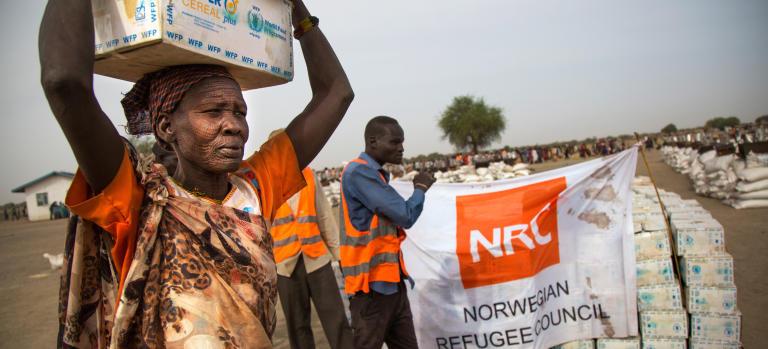Africa-Press – South-Sudan. Albert Einstein is credited with making a famous quote that goes, “Insanity is doing the same thing over and over and expecting different results.” This adage calls for a paradigmatic shift in giving approaches to problems in order to hammer out a lasting remedy. OK, enough with philosophies and back to the real issues.
On Saturday, United Nations (UN) agencies released a damning but not peculiar report, stating that over seven million people in South Sudan are facing starvation. The Integrated Food Security Phase Classification (IPC) report revealed that many households are facing an oblique future due to the impending food shortage occasioned by floods, subnational conflicts, and the impacts of the coronavirus pandemic.
“Recent food system assessments confirmed that the drivers of food and nutrition insecurity in this country reside in microeconomic management. They reside in the slow pace of the peace agreement’s implementation and inside the weak institutional and governance framework, “Josephine Lagu, the minister of agriculture and food security.
According to the IPC report, 52 of the 79 counties in South Sudan will require emergency response. Also, around 23 counties will face an acute crisis that requires joint efforts of both the government and aid agencies to address.
In addition, the UN Humanitarian Coordinator in South Sudan, Sara Beysolow Nyanti, said the situation requires parties to implement the peace agreement to allow the population to return to their farmlands to cultivate.
“We will continue to have the situation in South Sudan if we do not start to make that transition to ensure peace at the community level,” said Beysolow.
In the same event, the Minister of Humanitarian Affairs and Disaster Management, Peter Mayen, added his voice to the call, warning that families could be in dire danger if no mechanism is put in place to contain the impending disaster.
“The only solution is to preposition food in those areas because, sooner or later, as it starts raining, of course, we do not know the magnitude of this year’s flood. Most of the parts are going to be flooded, so the only option right now is to ensure that we preposition foods in the areas that we cannot access, “he said.
Early last year, the UN conducted a similar study, which revealed that 8.3 million people were vulnerable to hunger. By then, floods were wreaking havoc in various parts of the country, not to mention inter-communal conflicts. The aid agencies did their part in mitigating the problem. While being proactive in averting a disaster like starvation is commendable, it is also important to point out that the government and other humanitarian agencies need to step up their game in addressing the hunger issue.
What the minister of agriculture and food security said about the need to boost security and work on capacity building is on the spot and necessary. We need to have communities thriving on the little that is there for sustenance, and we can only achieve that if we have a change of approach in addressing these problems. Can we invest in proper food production? Can we invest in security and roll out flood mitigation strategies? Yes! We can!
For More News And Analysis About South-Sudan Follow Africa-Press






